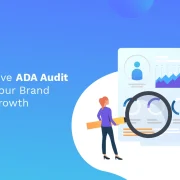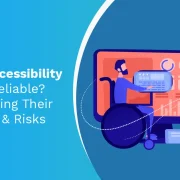xAPI (Experience API), also known as Tin Can, is a cutting-edge eLearning specification that revolutionizes how learning experiences are tracked and shared. Unlike its predecessor SCORM, xAPI isn’t limited to a Learning Management System (LMS). It empowers you to capture data about a wide range of learning activities, both online and offline, providing a holistic view of an individual’s learning journey. Discover how xAPI is transforming training and development by enabling personalized learning paths and providing rich, actionable insights.
What is xAPI (also Experience API or Tin Can)?
xAPI, also known as Experience API or Tin Can API, is a cutting-edge e-learning technology specification that revolutionizes how learning experiences are tracked and analyzed. Unlike traditional e-learning standards like SCORM, xAPI transcends the limitations of a Learning Management System (LMS) and allows you to capture data about a wide range of learning activities, both online and offline.
Think of xAPI as a universal language for learning. It records learning events as “statements” in the form of “I did this.” These statements, using a standardized vocabulary, track who (Actor) performed what activity (Verb) on what object (Object). For example: “John completed the cybersecurity course” or “Maria attended a sales training workshop.”
This flexible data capture opens doors to track learning experiences happening anywhere: simulations, mobile apps, games, real-world training, social learning, and more. xAPI sends this data to a Learning Record Store (LRS), a centralized database that stores all the learning activity statements. This centralized data allows for comprehensive analysis of learner performance, identification of learning gaps, and personalized learning experiences. Ultimately, xAPI empowers organizations to better understand the impact of their learning initiatives and optimize them for improved outcomes.
In short, xAPI is about tracking learning beyond the traditional LMS, providing a holistic view of the learning journey, and enabling data-driven decisions to enhance learning effectiveness.
Why is xAPI (also Experience API or Tin Can) Important?
xAPI, also known as Experience API or Tin Can, is revolutionizing learning and development by providing a more comprehensive and insightful view of how people learn. Its importance stems from its ability to track learning experiences beyond traditional Learning Management Systems (LMSs).
Unlocking Learning Data: xAPI allows you to capture data from a vast range of learning activities, whether they occur online or offline. This includes formal training courses, simulations, games, social learning, on-the-job training, performance support tools, and even real-world experiences. By capturing this broader spectrum of data, organizations gain a more holistic understanding of how individuals acquire knowledge and skills.
Improved Learning Insights: The data collected through xAPI provides richer insights into learner behavior and performance. This enables personalized learning experiences, improved training programs, and more effective performance support. Organizations can identify knowledge gaps, tailor training to individual needs, and measure the impact of learning initiatives on business outcomes.
Flexibility and Integration: xAPI isn’t limited to specific platforms or devices. It can be used with any learning technology, including mobile apps, simulations, and even physical devices. This flexibility allows for seamless integration of learning data from diverse sources, creating a unified view of the learning landscape.
Data-Driven Decision Making: Ultimately, xAPI empowers organizations to make data-driven decisions about their learning and development investments. By understanding what works and what doesn’t, organizations can optimize their training programs, improve employee performance, and achieve better business results. Its ability to connect learning activities with real-world outcomes is invaluable for demonstrating the ROI of learning initiatives.
How Does xAPI (also Experience API or Tin Can) Work?
xAPI, or Experience API, works by recording and transmitting learning experiences from a wide variety of activities, both online and offline. Think of it as a universal language for learning data.
Here’s a simplified breakdown of the process:
- The Actor: This is the learner or the person performing the activity. It could be someone completing an online course, attending a conference, reading a book, or participating in a simulation.
- The Verb: This describes the action the actor performed. Common verbs include “completed,” “attempted,” “experienced,” “read,” “viewed,” “scored,” or “interacted.”
- The Object: This is the activity or resource the actor interacted with. This could be a specific lesson, a video, a quiz question, a physical training exercise, or even a virtual reality environment.
These three components (Actor, Verb, Object) form a statement. For example, “John completed the module on xAPI.” This statement is then sent in a consistent format to a Learning Record Store (LRS).
The Learning Record Store (LRS) acts as a central repository for all xAPI data. It stores these statements and allows them to be queried and analyzed. The LRS can be a standalone system or integrated within a Learning Management System (LMS). Because data is stored centrally in the LRS, it can be aggregated to provide a holistic view of learning across different platforms and activities. This data can then be used to personalize learning experiences, improve training effectiveness, and gain deeper insights into how people learn.
xAPI’s flexibility allows for tracking a vast range of learning experiences beyond traditional e-learning, providing richer data for analysis and informed decision-making.
Examples of How Leading Brands Use xAPI
xAPI (Experience API or Tin Can) empowers organizations to track learning experiences beyond traditional LMS environments, providing deeper insights into learner behavior and performance. Leading brands are leveraging xAPI in innovative ways to enhance training and development.
McDonald’s: Uses xAPI to track on-the-job training performance for new hires, gathering data on speed, accuracy, and customer interaction during real shifts. This helps identify areas for improvement and personalize training programs for faster onboarding.
Domino’s: Employs xAPI to monitor the effectiveness of its delivery driver training. By tracking data from simulations and real-world delivery scenarios (speed, navigation, adherence to safety protocols), they can optimize routes, improve driver safety, and enhance customer service.
Accenture: Leverages xAPI to capture learning experiences across various platforms, including online courses, simulations, and in-person workshops. This comprehensive data enables them to personalize learning paths, identify skill gaps, and measure the impact of training on business outcomes.
Deloitte: Uses xAPI to track learning activities within gamified simulations and virtual reality training. This allows them to gather detailed data on decision-making processes, problem-solving skills, and team collaboration, providing actionable insights for leadership development.
These examples illustrate how xAPI helps brands create more engaging, personalized, and effective learning experiences, leading to improved performance and a stronger competitive advantage.
Key Benefits of xAPI (Experience API or Tin Can)
xAPI, also known as Experience API or Tin Can, offers a revolutionary approach to learning data collection, unlocking benefits far beyond traditional eLearning standards. Its flexibility and comprehensive tracking capabilities provide valuable insights and improve learning outcomes.
Enhanced Tracking & Personalization: xAPI tracks learning experiences wherever they occur – from formal courses to on-the-job training, simulations, games, and even real-world activities. This comprehensive data paints a holistic picture of the learner, enabling highly personalized learning paths and targeted interventions.
Data-Driven Insights: xAPI empowers organizations to analyze learning data in new ways. By aggregating data from diverse sources, you can identify trends, measure the effectiveness of different learning modalities, and optimize learning programs for maximum impact. Understand what truly drives performance improvement.
Improved Learning Outcomes: With a clearer understanding of the learning journey, you can tailor content, provide timely feedback, and create more engaging and effective learning experiences. This leads to improved knowledge retention, skill development, and ultimately, better performance.
Mobile and Offline Learning: xAPI supports learning in any environment. It captures data even when learners are offline, synchronizing the information once they reconnect. This is crucial for mobile learning, field-based training, and situations with limited connectivity.
Future-Proofing Learning: By adopting xAPI, you’re investing in a flexible and scalable solution that can adapt to the evolving landscape of learning technologies. It allows you to integrate new learning modalities and capture data from emerging platforms, ensuring your learning programs remain relevant and effective for years to come.
Common Misconceptions Around xAPI (Experience API or Tin Can)
xAPI, also known as Experience API or Tin Can, is a powerful learning technology standard, but it’s often misunderstood. Addressing these misconceptions can help unlock its full potential.
Misconception 1: xAPI is just a replacement for SCORM. While xAPI can track learning experiences beyond traditional eLearning, it’s not solely a replacement. SCORM primarily tracks course completion and scores within a Learning Management System (LMS). xAPI broadens the scope to capture a wider range of learning activities, formal and informal, inside and outside the LMS. xAPI can work alongside SCORM to provide a more comprehensive picture of learning.
Misconception 2: xAPI requires a complex and expensive infrastructure. Implementing xAPI doesn’t necessarily mean a huge investment. While a Learning Record Store (LRS) is required to store xAPI data, various LRS solutions exist, including cloud-based options and those integrated into existing learning platforms. The complexity depends on the scope of tracking you desire. Start small and scale up as needed.
Misconception 3: xAPI is only for tracking online learning. xAPI’s strength lies in its ability to track almost any learning experience, including real-world activities like attending conferences, participating in simulations, or on-the-job training. It’s designed to capture data from diverse sources, creating a holistic view of an individual’s learning journey.
Misconception 4: xAPI is difficult to implement. While understanding the technical aspects is essential, many authoring tools and platforms now offer built-in xAPI support, simplifying the implementation process. Focusing on clear learning objectives and identifying the data you want to capture is key to a successful xAPI implementation.
By understanding these common misconceptions, organizations can effectively leverage xAPI to create more personalized, data-driven learning experiences and gain valuable insights into their learners’ progress.




